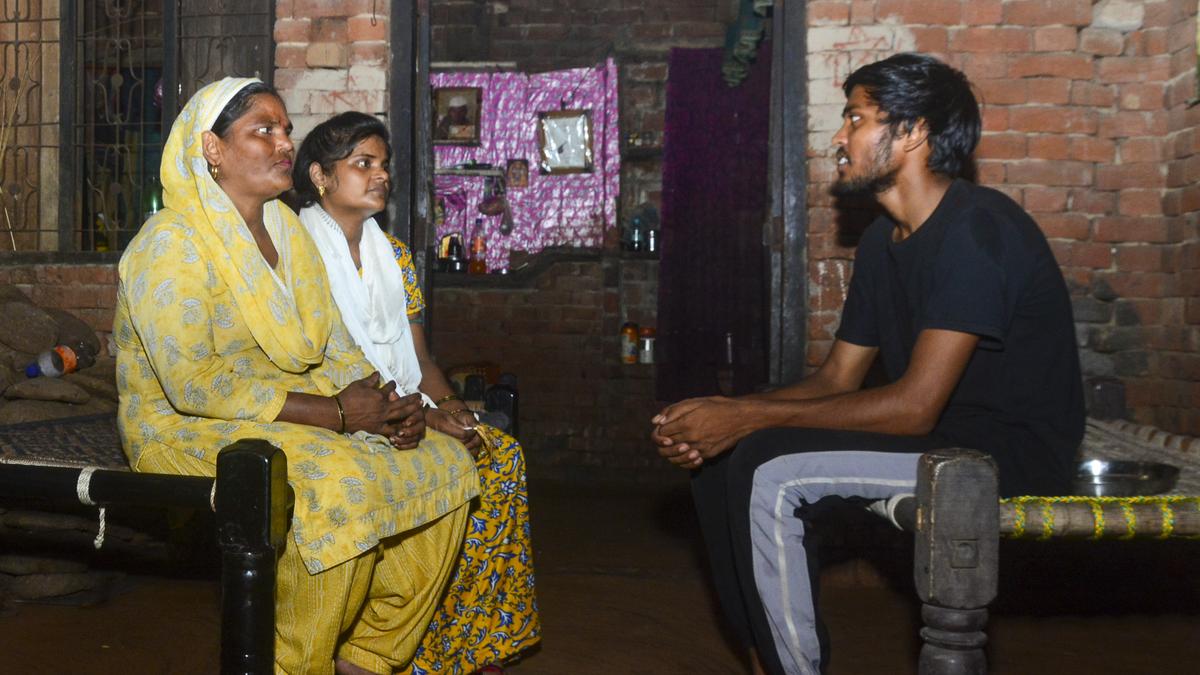
A Dalit family prepares to send its son to IIT amid joy and a hint of nervousness
The Hindu
Atul Kumar secures IIT admission after Supreme Court intervention, highlighting the struggles of a Dalit family.
In one of the hundreds of modest un-plastered, bare-bricked homes in Muzaffarnagar’s Titora village, Tuesday morning was busy. The entire household was packing. In a matter of days, 18-year-old Atul Kumar, the youngest child of the household, will move to a hostel of the Indian Institute of Technology in Dhanbad.
The previous day, the Supreme Court had intervened and passed a direction to protect Atul’s seat at the premier engineering institute, paving the way for the confirmation of his admission. Three months ago, the JEE (Advanced) 2024 exam results had come, and Atul had secured a rank of 1455 in his category. Even though his family had arranged the ₹17,500 required to complete the process, the institute’s portal had closed by then.
“We were celebrating throughout on the way back home. I must thank the media, the court and the Chief Justice for bringing us justice,” said Atul’s father Rajendra, a Dalit daily-wage labourer who also works as a part-time tailor. “I am elated. Still as excited as I was yesterday when the Supreme Court’s decision came. I can’t wait to get to the campus,” Atul told The Hindu over the phone on Tuesday.
Both he and his father had come to New Delhi to hear the court deliver its judgement on Monday.
As the family got packing the following day, Atul said he was thinking about what to take and what to leave behind. His mother, Rajesh, said, “I have been thinking about what to send along with him. All I can think of is the food I know he likes.”
Rajendra was busy fielding calls from press persons and thanking well-wishers, many of whom were offering to pay for Atul’s tuition at IIT Dhanbad.
But amidst the happiness in the Kumar household about having “won a battle” with IIT’s “unfair” system, as Atul described it, his father was nervous about sending his boy out into the world of elite institutes, where complaints of abuse, and implicit and explicit ways of discrimination and social isolation are regular.

The girl, who was admitted to Aster CMI Hospital with alarming breathlessness and significant pallor, was diagnosed with Wegener’s Granulomatosis (now known as Granulomatosis with Polyangiitis or GPA), a rare autoimmune condition that causes spontaneous bleeding in the lungs, leading to acute respiratory failure.

ACB files case against IPS officer N. Sanjay in Andhra Pradesh. The official is accused of manipulating the tender processes for awarding contract for development and maintenance of AGNI-NOC portal, and conducting awareness meetings for SC/STs. It is alleged that the total value of properties stolen, or involved in the case is estimated at ₹1,75,86,600.









